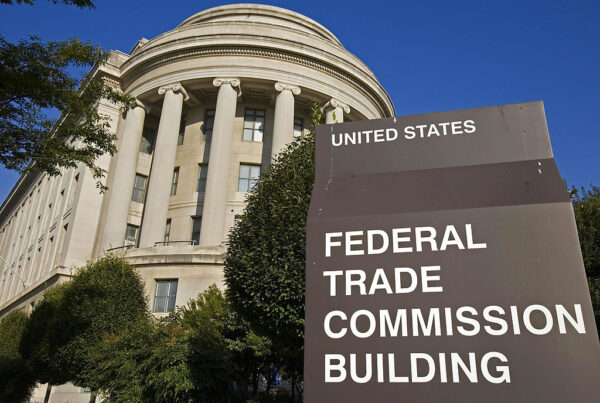
The Federal Trade Commission announced Tuesday that two hospital systems in New Jersey that were planning to merge have canceled those plans, following an FTC complaint that a merger would be anticompetitive.
“The transaction would have combined two hospitals located less than a mile from each other, which also happen to be the only two hospitals in the city of New Brunswick, New Jersey,” Federal Trade Commission Bureau of Competition Director Holly Vedova said in a news release. “With combined shares of approximately 50 percent for inpatient general acute care services in Middlesex County, New Jersey, the transaction was presumptively unlawful and would have resulted in higher prices and lower quality of care for New Jersey residents.”
The hospitals planning to merge include RWJBarnabas Health, one of the largest healthcare systems in New Jersey with $6.6 billion revenue in 2021, and Saint Peter’s Healthcare System, which operates an independent hospital near RWJ’s general acute care hospital. The two hospital systems compete for inclusion in health insurance plans, and also compete for patients.
“This difficult decision was not reached lightly,” said Barry H. Ostrowsky, chief executive officer of RWJBarnabas Health in a news release. “We are disappointed in the termination of the proposed transaction, which we believe would have transformed quality, increased access and decreased the overall cost of care for the people of this State through the creation of a premier academic medical center.”
The CEO of St. Peter’s Healthcare System Leslie Hirsch also said in a news release she was disappointed with the outcome. “However, we are grateful for the strong partnership we’ve had with the RWJBarnabas leadership,”said Hirsch.
On June 2, the FTC voted 5-0 to file a complaint to block the proposed merger, which would “significantly increase concentration for general acute care services in Middlesex County, New Jersey, and leave insurers and patients with fewer, less attractive alternatives,” according to the news release.

A Deep-dive Into Specialty Pharma
A specialty drug is a class of prescription medications used to treat complex, chronic or rare medical conditions. Although this classification was originally intended to define the treatment of rare, also termed “orphan” diseases, affecting fewer than 200,000 people in the US, more recently, specialty drugs have emerged as the cornerstone of treatment for chronic and complex diseases such as cancer, autoimmune conditions, diabetes, hepatitis C, and HIV/AIDS.
This is the third complaint the FTC filed against proposed hospital mergers so far this year. One complaint was against Utah healthcare competitors HCA Healthcare and Steward Health Care System, and another complaint was against Rhode Island’s two largest healthcare providers.
Meanwhile, several antitrust lawsuits against healthcare systems are underway across the country, including one case brought against Nashville-based HCA Healthcare earlier this month. A small town in North Carolina is accusing HCA of “unlawful restraint of trade and monopolization” after HCA purchased the Mission Hospital system in 2019, and the lawsuit says it now holds a monopoly market share of more than 70% in multiple NC counties.
Another antitrust lawsuit is underway in Connecticut. Saint Francis Hospital and Medical Center sued Hartford HealthCare in January, claiming Hartford is trying to create a monopoly on services by hiring away Saint Francis physicians.
Photo: Paul J. Richards/ AFP via Getty Images













